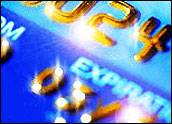
Although currently a blip on the e-commerce radar screen, smart cards and other digital payment methods are likely to start gaining a share of the market now dominated by magnetic strip credit cards, according to a study by ActivMedia Research.
The report, “Real Numbers Behind E-Transactions, Fraud & Security,” predicts that credit cards, which now account for 98.5 percent of all online transactions, will decline to a 90 percent share by 2001 as new payment technologies emerge.
In addition, the research firm forecasts that smart card and e-wallet transaction volumes will grow from $500 million (US$) in 2000 to $5.7 billion in 2001, and to a whopping $20 billion in 2002.
For the study, ActivMedia surveyed over 1,000 small, medium and large-size online business, including those that operate B2B and B2C sites, online content providers and Internet service providers (ISPs).
Looking for Options
Many industry watchers say that meeting the consumer demand for new payment products that offer enhanced security is a key to the growth of e-commerce.
Smart cards are one answer to that demand because they store personal identification and account information in a chip that only smart card readers can access.
“The ability to add an accentuated level of security is what people are striving for,” Chris Anne Wheeler, vice president of information services for ActivMedia, told the E-Commerce Times.
Wheeler added, “The use of credit cards is a U.S. phenomenon. Most people don’t want the added expense of carrying balances.”
U.S. Market Primed
While smart cards are widely used across Europe, they have yet to take hold in the United States. However, industry analysts say that a number of factors have primed the domestic market for their import.
According to some analysts, the explosive growth forecasted in mobile e-commerce through cellular phones, wireless devices, and personal digital assistants (PDAs), as well as the push for digital signatures, may drive consumer demand for beefed up protective measures.
The decreasing cost of chip technology and the rise of home computer usage are also expected to help smart cards gain market share in the United States.
Some credit card companies are already jumping on board. Earlier this month, financial services giant Visa USA rolled out its new digital-based “smart Visa” in a bid to provide tighter security for its customers.
Common Standard
For smart cards to gain widespread acceptance, analysts believe that the bill-pay industry must create a technological standard that can be adopted for use by consumers, as well as by brick-and-mortar merchants and e-tailers.
They also say that corporate and government players must meet the challenge of implementing smart cards that work with the technology already in place, such as magnetic strip cards.
Card technology experts from the Smart Card Forum, a multi-industry group, think “hybrid cards” are the next logical step. Hybrid cards contain not only an embedded chip or memory module, but also a magnetic strip and bar coding.
Consumers using a hybrid card would be able to access different hardware systems, such as merchant card readers, ATM machines and bar code applications. To enhance the security features, the cards are likely to include the cardholder’s photograph, printed name and signature.












































Social Media
See all Social Media